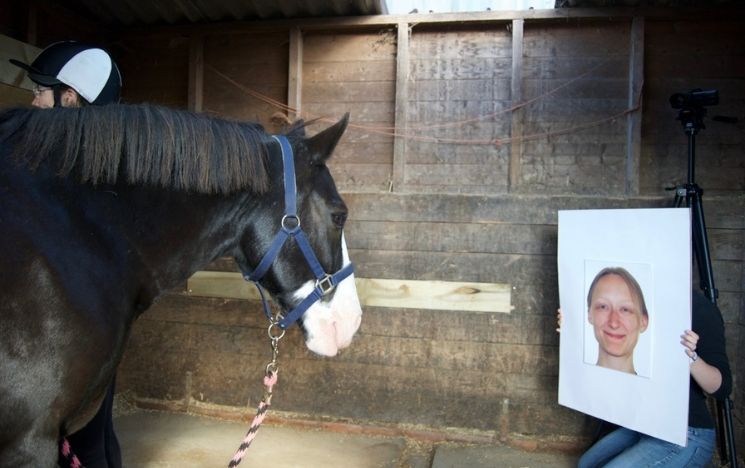Emotional awareness in horses
Our research has shown that horses have advanced cognitive skills and highly developed emotional awareness of both humans and other horses.

Karen McComb recently worked with a large team of researchers, including long-term collaborator Leanne Proops, along with Kate Grounds, Amy Smith and Jen Wathan, to complete a Leverhulme Trust funded research project on emotional awareness and social behaviour in the domestic horse.
We were able to show that horses could distinguish between emotional cues displayed not just in human facial expressions, but also in emotional vocalisations and postures – and that they perceived cues related to angry emotional states as more negative.
We also identified a form of emotional memory in horses that had previously been considered unique to humans, showing that horses remember expressions they have seen on the faces of specific humans several hours earlier, and adjust their subsequent attitude to the humans on this basis.
Finally, we showed that horses are also adept at distinguishing between positive and negative emotional facial expressions and vocalisations in other horses. Informed by this research we conducted a set of emotional awareness tests that we then gave to more than 80 individual horses, while in parallel taking measures of their social behaviour and physiological functioning when grazing with their herd-mates. Our preliminary results indicate parallel relationships between emotional skills, social behaviour and stress-related physiology in horses and humans.
Our publications on emotional awareness in horses have generated major publicity including appearances on National BBC TV News bulletins and widespread radio and press coverage. The work is also featured in a three-part documentary Equus: Story of the Horse.
Our previous work on social cognition in domestic horses included developing novel paradigms to examine cross-modal individual recognition in this species. Our study in PNAS 2009, which was awarded the Cozzarelli Prize, provided the first systematic demonstration of cross-modal individual recognition of conspecifics in a nonhuman. This constituted a major advance, suggesting that rich multi-sensory representations could underlie animals’ knowledge of each other, and features in the BBC documentary Talk to the Animals.